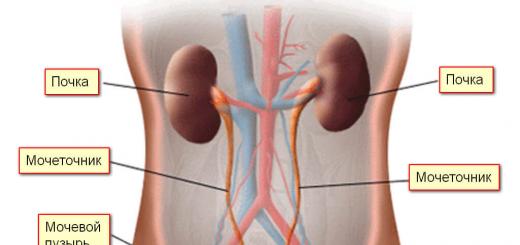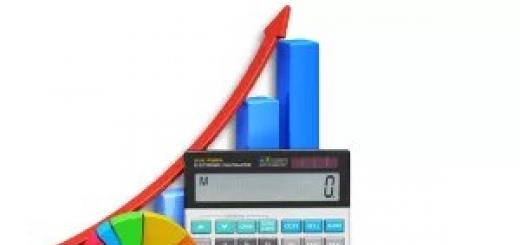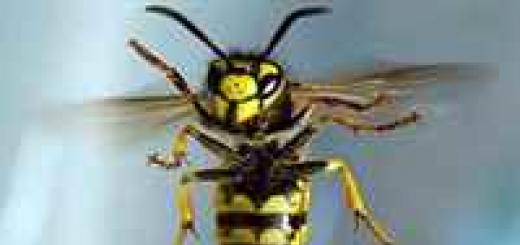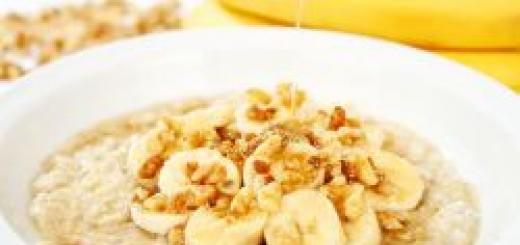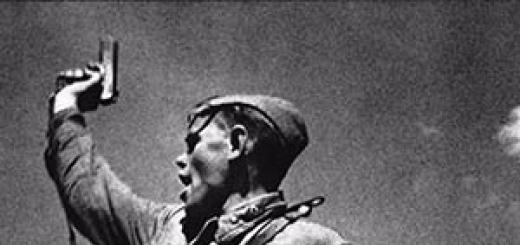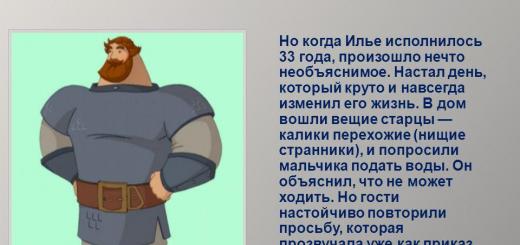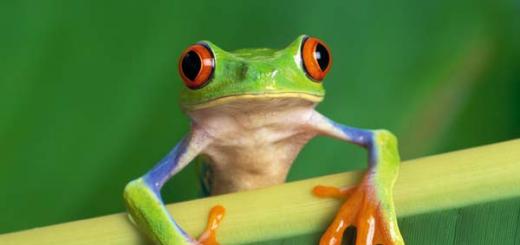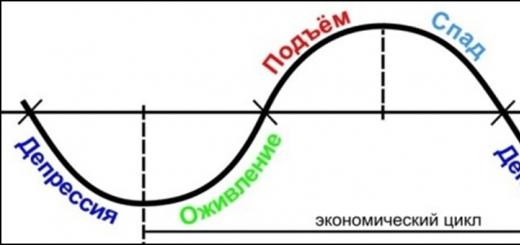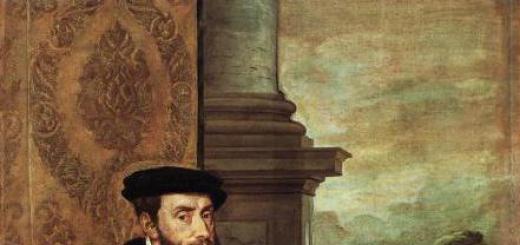Пример: Perhaps one day you will meet Britney Spears.
What would you do if you met Britney Spears?
- Perhaps one day a cat will follow you home.
What would you do... - Perhaps one day somebody will ask you to sing your favourite song.
What would you do... - Perhaps one day you will find a hidden treasure.
What would you do... - Perhaps one day somebody will throw an egg at you.
What would you do... - Perhaps one day your car will be stolen.
What would you do...
Задание 2. Соедините части предложений.
| 1. I would buy the ring | A. if it snows. |
| 2. If I had taken my mother’s advice | B. I would study French. |
| 3. If you help me | C. I wouldn’t have left the university. |
| 4. We will go skiing | D. if it was cheaper. |
| 5. If I had a lot of free time | E. I won’t be late for work. |
Задание 3. Поставьте глагол в скобках в нужную форму.
- If you drive so fast, you………(crash).
- If I had had more time, I………(help) you.
- If I had a yacht, I………often………(go) sailing.
- I would travel a lot if I …………(have) a lot of money.
Задание 4. Из двух вариантов выберите один верный.
- If it rains/will rain , I will stay at home.
- If I had a lot of money, I buy/I would buy a big house.
- Jim would have entered the university if he had passed/has passed the exams.
- If I were/would be you, I would tell him everything.
Задание 5. Переведите на английский язык.
- На твоем месте я не стал бы покупать это платье.
- Я подвез бы тебя, если бы у меня была машина.
- Если бы ты не забыл зонтик, ты бы не простыл.
- Если бы вы работали усерднее в прошлом году, вы бы теперь хорошо знали английский язык.
Ответы с пояснениями
Задание 1.
Во всех предложениях данного задания описываются воображаемые (невероятные/маловероятные), а не реальные ситуации. В подобных случаях употребляется второй тип условных предложений. Во втором типе условных предложений в придаточной части (условии) употребляется Past Simple , а в главном предложении (следствии) употребляется форма сослагательного наклонения – would.
- What would you do if a cat followed you home?
- What would you do if somebody asked you to sing your favourite song?
- What would you do if you found a hidden treasure?
- What would you do if somebody threw an egg at you?
- What would you do if your car was/were stolen? (в придаточной части (условии) условных предложений допустимо использовать were вместо was )
Задание 2.
- D
Смотрим на перевод: я бы купил кольцо... Это воображаемая ситуация, значит, необходимо употребить второй тип условных предложений – Past Simple в придаточной части (условии), would – в главном предложении (следствии). В первой части предложения употреблена форма сослагательного наклонения would, значит, из ответов ищем подходящий по смыслу вариант в форме Past Simple. Выбираем if it was/were cheaper и помним, что в придаточной части (условии) условных предложений допустимо использовать were вместо was .
CСмотрим на перевод: если бы я послушал мамин совет... Смотрим на конструкцию – had taken (Past Perfect). Если в придаточной части (условии) употребляется Past Perfect, это указывает на третий тип условных предложений. В третьем типе в главном предложении употребляется конструкция would have (done) . Ищем среди ответов подходящий вариант по конструкции и по смыслу. Выбираем I wouldn’t have left the university.
EСмотрим на перевод: если ты мне поможешь... Смотрим на конструкцию – If you help me (Present Simple) . Если в придаточной части (условии) употребляется Present Simple, это указывает на первый тип условных предложений. В первом типе в главном предложении употребляется время Future Simple. Ищем среди ответов подходящий вариант по конструкции и по смыслу. Выбираем I won’t be late for work.
AСмотрим на перевод: мы пойдем кататься на лыжах... Смотрим на конструкцию – We will go skiing (Future Simple) . Если в главной части (следствии) употребляется Future Simple, это указывает на первый тип условных предложений. В первом типе в придаточной части употребляется Present Simple. Ищем среди ответов подходящий вариант по конструкции и по смыслу. Выбираем if it snows.
BСмотрим на перевод: если бы у меня было много свободного времени... Это воображаемая ситуация, значит, необходимо употребить второй тип условных предложений – Past Simple в придаточной части (условии), would – в главном предложении (следствии). Смотрим на конструкцию – If I had a lot of free time (Past Simple) . Из ответов выбираем подходящий по смыслу и конструкции вариант. Выбираем I would study French.
Задание 3.
- will crash
Переводим предложение: Если ты будешь вести так быстро, ты разобьешься. Это вполне реальное, осуществимое предположение, значит, это первый тип условных предложений. Далее смотрим на конструкцию – If you drive so fast (Present Simple). Если в придаточной части (условии) употребляется Present Simple, это опять-таки указывает на первый тип условных предложений. В первом типе в главном предложении употребляется время Future Simple – will crash .
- would have helped
Переводим предложение: Если бы у меня было больше времени... Смотрим на конструкцию – had had more time (Past Perfect). Если в придаточной части (условии) употребляется Past Perfect, это указывает на третий тип условных предложений. В третьем типе в главном предложении употребляется конструкция would have (done) . Следовательно, правильная форма – would have helped.
- would often go
Переводим предложение: Если бы у меня была яхта... Это воображаемая ситуация, значит, необходимо употребить второй тип условных предложений – Past Simple в придаточной части (условии), would – в главном предложении (следствии). В придаточной части употреблено Past Simple – if I had a yacht , что опять-таки подтверждает, что это второй тип условных предложений. Следовательно, правильная форма – would often go.
had
Переводим предложение: Я бы много путешествовал, если... Это воображаемая ситуация, значит, необходимо употребить второй тип условных предложений – Past Simple в придаточной части (условии), would – в главном предложении (следствии). Следовательно, правильная форма – had .
Задание 4.
- rains
Смотрим на конструкцию в главном предложении – will stay (Future Simple) . Значит, в придаточном предложении выбираем Present Simple, так как это первый тип условных предложений (вполне реальное, осуществимое предположение).
- would
Смотрим на конструкцию в придаточном пердложении – had a lot of money (Past Simple). Значит, в главном предложении выбираем would buy, так как это второй тип условных предложений (воображаемая ситуация).
- had passed
Смотрим на конструкцию в главном предложении – would have entered. Она соответствует третьему типу условных предложений (предположение, относящиеся к прошедшему). В третьем типе в придаточной части употребляется Past Perfect – had passed.
were
Смотрим на конструкцию в главном предложении – would tell. Данная конструкция соответствует второму типу условных предложений, где в придаточной части употребляется Past Simple. Более того, в условной части видно сочетание – If I were you (если бы я был на вашем месте) .
Задание 5.
- If I were you, I wouldn’t buy this dress.
Это воображаемая ситуация, поэтому используется второй тип условных предложений (Past Simple употребляется в условии, would – в следствии. Также необходимо обратить внимание на выражение If I were you (если бы я был на вашем месте).
- I would give you a lift if I had a car.
Это воображаемая ситуация, поэтому используется второй тип условных предложений (Past Simple употребляется в условии, would – в следствии).
- If you hadn’t forgotten the umbrella, you wouldn’t have caught a cold.
Это условное предложение третьего типа, в котором выражается предположение, относящееся к прошедшему и являющееся невыполнимым. В придаточном предложении (условии) употребляется Past Perfect, а в следствии – would have (done).
- If you had worked harder last year, you would know English well now.
Это условное предложение, образованное из элементов второго и третьего типов. Иногда условие может относиться к прошедшему, а следствие к настоящему/будущему или наоборот. В данном предложении условие относится к прошедшему, поэтому мы употребляем Past Perfect (had worked) . В то же время главное предложение относится к настоящему, поэтому мы употребляем would know.
Second Conditional
1. Поставьте глаголы из скобок в необходимую форму.
If he … (be) my friend, I … (invite) him to the party.
If I … (be) taller, I … (become) a basketball player.
If an asteroid … (hit) our planet, it … (cause) an ice age.
John … (travel) around the world if he … (win) a lottery prize.
We … (go) to Spain this winter if we … (have) enough money.
She … (not mind) if you … (borrow) her car.
If you … (move) to another city, I … (phone) you every day.
They … (laugh) at me if I … (sing) this song.
If we … (have) free time, we … (start) a new hobby.
If I … (know) her secret, I … (not tell) it to anyone.
2. Рас-крой-те скоб-ки, по-ста-вив гла-го-лы в нуж-ную форму
If you (drive) more carefully, you (have not) so many accidents.
If you (get up) earlier, he (get) to work on time.
If we (have) more time, I (tell) you more about it.
If you (sell) more products, you (earn) more money.
I (help) you if you (trust) me more.
His car (be) a lot safer if he (buy) some new tyres.
The children (be) better swimmers if they (go) swimming more frequently.
I (not mind) having children if we (live) in the country.
If I (be) you, I (not worry) about going to university.
If I (have) any money, I (give) you some.
3. Составьте условные предложения II типа, используя данные слова в необходимой форме. Переведите .
Н - р : the questions be so easy/ all of us pass the test. - If the questions were so easy, all of us would pass the test. (Если бы вопросы были такими легкими, мы все сдали бы тест.)
he be slim/ he be more attractive.
I pick the children up/ I am not busy.
you drink much wine/ you feel sleepy.
I am married/ I have lunch at home.
Peter live in a house/ he have a dog.
4. Замените условные предложения I типа (реальное условие) на условные предложения II типа (нереальное условие).
If you leave the child alone, he will hurt himself.
We’ll make nice pictures if Paola brings a camera.
If it snows, the kids will make a snowman.
I’ll buy this laptop if I have enough money.
If our granny puts on her glasses, she will see the flowers.
If you are too busy, we’ll leave you alone.
I will plant the tomatoes tomorrow if it rains.
If Bob finds his relatives, he will live with them.
№5. Допишите
следующие
предложения
.
1. You would know English better if …
2. I would leave Moscow if …
3. If I were you, …
4. If I knew the weather forecast, …
5. I would go for a walk, if …
6. I would lend you my textbook if …
7. If we could get the tickets, …
8. If they were here, …
9. We would be glad if …
10. If he were younger, …
№6. Переведи .
Если
бы ты попросил, они бы помогли тебе.
Он бы сдал экзамен,
если
бы он больше занимался.
Если
бы мы нашли кошелек, мы бы вернули его владельцу.
Если
бы она пришла вовремя, я рассказал бы ей все.
Глагол be для всех лиц имеет форму were :
Я бы на твоём месте не совал всюду нос.
Если бы он был миллионером, он был бы счастлив.
Если бы она была свободна, она бы это сделала.
Если бы мы были там, то пришли бы немедленно.
| Тип | Придаточное предложение (условие) | Главное предложение | Пример | Перевод |
| 1 . Реальное условие, относящееся к настоящему, будущему или прошедшему времени | Present Simple V/Vs | Future Simple shall/will + V | If I have money, I will buy a car. If the weather is fine, we will go for a walk. |
Если у меня будут деньги, я куплю машину. Если погода будет хорошая, мы пойдем гулять. |
| 2. Нереальное или маловероятное условие, относящееся к настоящему или будущему времени | Past Simple 2fV Глагол to be будет иметь форму множественного числа |
Future-in-the Past Simple would/should/ could/might + V | If the weather was fine, I went for a walk. If I were a princess, I would live in a palace. If I had money, I would buy a car. |
Если погода была хорошей, мы ходили гулять. Если бы я была принцессой, я бы жила во дворце. Если бы у меня были деньги, я бы купил машину. |
| 3. Нереальное условие, относящееся к прошлому времени | Past Perfect had + 3fV | Future-in-the Past Perfect would/should/could/might + have + 3fV | If I had had money last year, I would have bought a car. | Если бы у меня были деньги в прошлом году, я бы купил машину. |
Бессоюзные условные предложения
Если условные (придаточные) предложения содержат глаголы had, were, could, should, то возможно бессоюзная связь главного и придаточного предложений. В этом случае эти глаголы ставятся перед подлежащим, союз if опускается. Такой порядок слов называется инверсией.
Перевод таких предложений следует начинать с союза «если бы».
E.g. Had he a dictionary, he could translate the text. – Если бы у него был словарь, он смог бы перевести текст.
Should he come, ask him to wait. – Если он придет, попросите его подождать.
Условные предложения. Сослагательное наклонение после "I wish”
|
Условные предложения I типа |
|||
| If I Если я |
live in the country буду жить за городом, find my book найду свою книгу |
I shall Я буду |
bathe every day. купаться каждый день. be very glad. очень рад. |
|
Условные предложения II типа |
|||
| I wish I were If I were Если бы я был |
at the camp в лагере a scientist ученым |
I should я бы |
have a very good time. хорошо проводил время. invent a time machine. изобрел машину времени. |
|
Условные предложения III типа |
|||
| I wish I had Если бы я был If I had Если бы я был |
translated the article yesterday перевел статью. learned my lesson выучил урок |
I should have Я бы |
found out all about this discovery. узнал бы все об этом открытии. got a good mark. получил бы хорошую отметку. |
Упражнение 1.
Переведите на русский язык следующие предложения.
1. I’ll ask Tom if I see him today.
2. We would go to the party if we had time tomorrow.
3. She would pass her exam next month if she worked harder.
4. She would be happy if she met him at the party next Sunday.
5. We’ll go nowhere tomorrow if it rains.
6. If she knew his phone number, she would call him next week.
7. If J. London had not learned life from his own experience, he could not have written his great works.
8. Had the science of radio not been developed so rapidly, we should not have got such remarkable changes in the technique today.
9. Had he been a young man, he would have taken part in the expedition.
10. If you had applied this method, you would have got better results.
Упражнение 2.
Поставьте глаголы в скобках в нужную форму
1. The trains all (stop) … if it snowed heavily.
2. If you (go out) … in cold weather without a coat, you would catch a cold.
3. If I saw a cheap second- hand car, I (buy) … it.
4. If you ate well and exercised regularly, you (live) … 100 years.
5. You would have had stomach ache if you (eat) … too much of that cake.
6. If it (rain) … this afternoon, I (take)… my umbrella.
7. If you did not drive carefully, you (have) … an accident.
8. If you (study) … for a higher qualification, you (get) … a better job next year.
9. If you sent the letter by first class mail, it (get) … there the following day.
10. If the weather is fine, we (go) for a picnic.
Упражнение 3.
Завершите следующие предложения.
1. I’ll ask him to lend me the money (если я вижу его).
2. You’ll be late (если не поедете на автобусе).
3. Will you help me (если мне нужна будет ваша помощь)?
4. I’d lend you the money (если бы у меня были деньги).
5. If I had her address (я бы дал вам его).
6. If they had gone by car, (они бы сэкономили время).
7. If my mother won a million pounds, (она бы потратила их очень быстро).
8. If I had more time, (я бы прочитал больше книг).
9. (если я буду чувствовать себя хорошо), I’ll be in class tomorrow.
10. He would have come to the party last Sunday (если бы его пригласили).
Упражнение 4.
Раскройте скобки, употребляя глаголы в соответствующей форме.
1. If I (to have) this rare book, I should gladly lend it to you.
2. The dish would have been much more tasty if she (to be) a better cook.
3. He never (to phone) you if I hadn’t reminded him to do that.
4. Your brother (to become) much stronger if he took cold baths regularly.
5. If he (to be) more courageous, he would not be afraid.
6. If the fisherman had been less patient, he (not to catch) so much fish.
7. If you (to put) the ice-cream into the refrigerator, it would not have melted.
8. If I (to know) the result now, I would phone her immediately.
9. If you had let me know yesterday, I (to bring) you my book.
10. If it (to snow), the children will play snowballs.
Упражнение 5.
Образуйте условные предложения.
Ex.g.: The weather is not fine and we won’t go for a walk. – If the weather is fine, we will go for a walk”.
1. He is busy and does not come. If…
2. The girl did not study well last year and received bad marks. If…
3. He broke his bicycle and so he did not go to the country. If…
4.He speaks English badly: he has no practice. If…
5. I had a bad headache yesterday, that’s why I did not come to see you. If…
6. The ship was sailing near the coast, that’s why it struck a rock. If…
7. He was not in town, therefore he was not present at our meeting. If…
8. The pavement was so slippery that I fell and hurt my leg. If…
9. The sea is rough, and we cannot sail to the island. If …
10. They made a fire, and the frightened wolves ran away. If …
Упражнение 6.
Раскройте скобки, употребляя глаголы в соответствующей форме сослагательного наклонения после "I wish”.
1. The unfortunate pupil wishes he (not to forget) to learn the rule.
2. I wish I (to have) a season ticket to the Philharmonic next winter.
3. I wish I (to consult) the teacher when I first felt that mathematics was too difficult for me.
4. I love sunny weather. I wish it (to be) warm and fine all the year round.
5. I wish I (not to lend) Nick my watch: he has broken it.
6. I wish you (to send) word as soon as you arrive.
7. I wish I (not to have) to do my homework every day.
8. I wish you (to go) skiing with me yesterday: I had such a good time!
9. I wish I (to know) Spanish.
10. I wish I (not to drink) so much coffee in the evening: I could not sleep half the night.
Упражнение 7
Переведите на английский язык.
1. Если бы он не был так близорук (short-sighted), он бы узнал меня вчера в театре.
2. Она здорова. Если бы она была больна, ее брат сказал бы мне об этом вчера.
3. Вы бы много знали, если бы регулярно читали этот журнал.
4. Если бы я узнала об этом раньше, то не сидела бы сейчас дома.
5. Если бы мои родители были богаты, они бы уже давно купили мне машину.
6. Она очень талантлива. Хорошо бы родители купили ей пианино. Если она начнет играть сейчас, она будет выдающимся (distinguished) музыкантом.
7. Если бы я знал французский, я бы уже давно поговорил с ней.
8. Если бы я знал немецкий язык, я бы читал Гете в оригинале (in the original).
9. Если бы я жил близко, я бы чаще (more often) заходил к вам.
10. Если бы вы не прервали (to interrupt) нас вчера, мы бы закончили работу в срок.
Упражнение 8.
Допишите следующие предложения.
1. You would know English better if …
2. I should have left Moscow yesterday if …
3. If I were you, …
4. If I had known that it was going to rain, …
5. I shall go for a walk, if …
6. I should lend you my textbook if …
7. If we had bought the tickets, …
8. If they were here, …
9. We should be glad if …
10. If he were younger, …
Упражнение 9.
Опустите союз в следующих условных предложениях, сделав соответствующие изменения в предложении.
Ex.g.: If we had gone there later, we would have seen them. – Had we gone there later, we would have seen them».
1. If I had time, I should study French.
2. If you should find them, kindly let me know.
3. If they had called at the office yesterday, they would have found me there.
4. If I had seen him yesterday, I should have told him about it.
5. If he were here I should speak to him.
6. If he were in town, he would help us.
7. If he should come, tell him to wait.
8. If I had enough money, I would travel.
9. If I were you, I should go there immediately.
10. If I were in his place, I should refuse.
Упражнение 1. Put the verbs in the brackets into the Present Indefinite or the Future Indefinite Tense.
- If Peter __________ (come) to my place, we__________ (go) to play in the yard.
- If Peter__________ (not come) to my place, I __________ (watch) TV.
- If Frank’s parents______ (have) their holidays in summer, they _____ (go) to the seaside.
- If they __________ (have) their holidays in winter, they __________ (stay) at home.
- If the fog _______ (thicken), Harold _______ (put up) the tent for the night.
- When I _______ (finish) my work, I_______ (go) to the cinema.
- We_______ (buy) this book as soon as our mother_______ (give) us some money.
- When we _______ (come) to your place you_______ (show) us your present.
- I_______ (return) you your ring when you_______ (ask) me.
- I_______ (wait) for my friend until he_______ (come) from the shop.
- My father_______ (start) writing before the sun _______ (rise).
- As soon as you _______ (finish) your study I_______ (present) you with a new flat.
Упражнение 2. Put the verb in the brackets in the correct tense to form the First Conditional.
Maria is a girl from your country. She is studying English and she"d like to visit an English-speaking country. If Maria (go) abroad, she (go) to England or America. She (visit) London if she (go) to England. If she (stay) in London, she (spend) much money. She (not be able) to stay for long if she (spend) all her money. If her holiday (be) very short, she (not practice) her English. It (be) a pity if she (not try) to speak English.
Упражнение 3. Make up conditional 1 sentences with if-clauses.
Example: Molly leave now / catch the bus . - If Molly leaves now, she’ll catch the bus.
- stay in bed / feel better
- work hard / get a job
- go shopping / spend much money
- ride a bike / get there quickly -
- eat carrots/see well in the dark .
- come now/go out together
Упражнение 4. Connect the sentences with when or if to form the first conditional.
Jack will come. We shall play chess. - When Jack comes, we shall play chess.
- All the pupils will come to school tomorrow. We shall write a test then.
- I’ll meet Ann after school. I’ll give her my album.
- You’ll not do your homework. The teacher will be angry.
- Mike won’t come today. We’ll play football without him.
- I’ll finish school with good marks. My father will take me to the seaside. .
- My school record may not be very good. Mom will be very upset.
Упражнение 5. Continue the chain stories. Use conditional 1.
A) If Brian has a lot of money, he’ll buy a bike.
If he buys a bike, he’ll ... If he rides it ... If …
B) If you don’t do well at school, you’ll become a bad pupil.
If you become a bad pupil, you’ll stay ... If you stay ... If ...
Упражнение 6. Study the list of prizes and speak for Nick and Tom, using conditional 1.
When Nick has breakfast at Tom’s house, he sees a packet of cornflakes on the table. On the back of it he sees this paper.
ANSWER AND WIN ONE OF THESE WONDERFUL PRIZES!
1st prize - a holiday in New York, 2nd prize - a motor-bike. 3rd-5th prize - a tent. 6th-12th prize - a cassette-recorder. 13th-20th prize - a camera. 21st-36th prize - an alarm-clock. 37th-50th prize - a book of flowers of Britain. 51st-99th prize - a T-shirt with Big Ben on it.
After reading it Tom has sent the answers.
a) Nick says to Tom:
1. If you win the first prize, you’ll get a holiday in New York.
1. If I win a holiday in New York, I’ll come and visit you.
Упражнение 7. Make conditional sentences.
- I’ll buy a colour film and take a lot of pictures if …
- I’ll have a party and we can dance to music if …
- I’ll go camping in the Lake District if …
- Molly’ll learn a lot of things if…
- I shan’t sit with you at the same desk unless…
- I’ll send her a letter as soon as …
- If he does his homework every day he …
- If he comes in the afternoon we …
- If you live in a big city what …?
- If Milly gives me her address, I …
- If you don’t stop talking, the teacher …
Упражнение 8. Answer the questions in conditional 1.
What will you do
- if it rains on Sunday?
- if your friends don’t play with you?
- if your TV doesn’t work this evening?
- if you lose your school record-book?
- when the lessons are over?
- when your holiday comes?
- when your friend comes to see you tonight?
- when you finish your homework?
Упражнение 9. Imagine that you are eighteen and you have finished school. What will you do then? Develop the following situation. Begin like this.
When I’m eighteen, I think I’ll I don’t think I’ll ..., but if , I’ll try
Упражнение 10. Join two sentences into one using if.
- It will rain today. We shall not go for a walk.
- Don’t move. You’ll fall down.
- The wind will change. There will be snow.
- I’ll be careful. I will not break the cups.
- You have free time now. Come for a walk with me.
- I’ll go hiking in summer. I’ll see a lot of interesting things.
- He’ll go shopping. He’ll buy some exercise-books for me.
Упражнение 11. Complete the sentences.
- Your Dad will get angry if you ... .
- My Mum will be happy if I ... .
- My sister will shout at me if I ...
- The teacher will not be happy if we ...
- You will do well at school if you ...
Упражнение 12. Write answers to the questions.
- What will you do if you jump into the river and see a crocodile there?
- What will your mother do if you break her favourite vase?
- What will the teacher do if you don’t do what she asks you to do?
- What will your friends do if you call them bad names?
- What will you do if you loose your school record- book?
Упражнение 13. Произнесите вслух все возможные условные предложения I типа, используя подстановочную таблицу. (Упражнение на выработку автоматизма речи)

